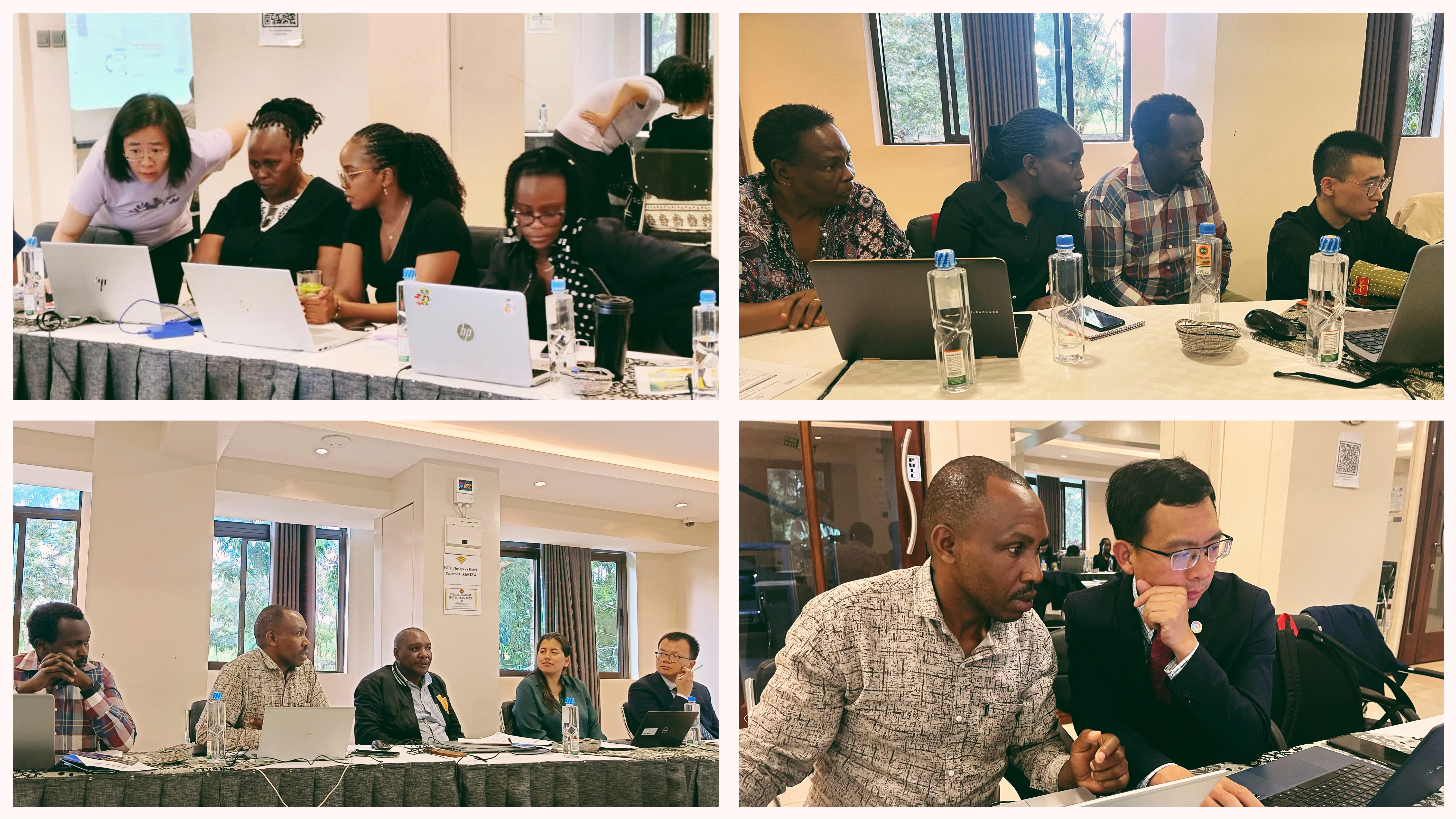Innovative Workshop Enhances SDG Monitoring in Kenya
May 28, 2024
From May 22 to 23, 2024, experts from the International Research Center of Big Data for Sustainable Development Goals (CBAS) conducted a workshop in Machakos, Kenya. Invited by the Partnership in Statistics for Development in the 21st Century (PARIS21), the workshop, titled "Innovative SDG Monitoring: Integrating Earth Observation Data with Official Statistics," drew enthusiastic participation from statisticians and GIS professionals representing various key institutions, including the Kenya National Bureau of Statistics (KNBS), the Meteorological Department, and the Ministry of Climate Change and Forestry.
The workshop centered on foundational data for supporting Sustainable Development Goals (SDGs), encompassing data processing methods and indicator calculation. Topics included SDG 2 (Zero Hunger), SDG 11 (Sustainable Cities and Communities), SDG 13 (Climate Action), SDG 15 (Life on Land), and the Open Science Program of the Sustainable Development Science Satellite-1 (SDGSAT-1).
The experts engaged in extensive academic exchanges with Kenyan participants through lectures, practical demonstrations, and interactive Q&A sessions. They also shared the latest research findings in harnessing big data for sustainable development and key technologies for monitoring and evaluating SDG indicators.
The workshop's main goal was to equip Kenyan participants with a comprehensive understanding and proficiency in advanced techniques for monitoring and analyzing sustainable development data. The training aimed to offer practical solutions to Kenya's data monitoring and processing challenges, thereby empowering local researchers to monitor and predict environmental indicators more effectively, enhance the national SDG framework, and bolster the country's capacity to address climate change. The successful conclusion of the workshop established a robust groundwork for future collaboration between CBAS and developing nations like Kenya in the realm of SDG monitoring and evaluation.
Paul Nderitu, Head of Food Monitoring, Nutrition, and Environmental Data at KNBS, lauded the training workshop, emphasizing its importance for KNBS. He expressed optimism about integrating innovative technologies and methods, such as remote sensing and satellite data, into official statistics production. This integration targets bridging the data gap to achieve the SDGs, thereby furnishing more precise and timely data to inform scientific decision-making. Kenyan participants extended heartfelt thanks to the experts and expressed their eagerness for enhanced and expanded cooperation in the future.

Scenes of the workshop.

Group photo.



News & Events